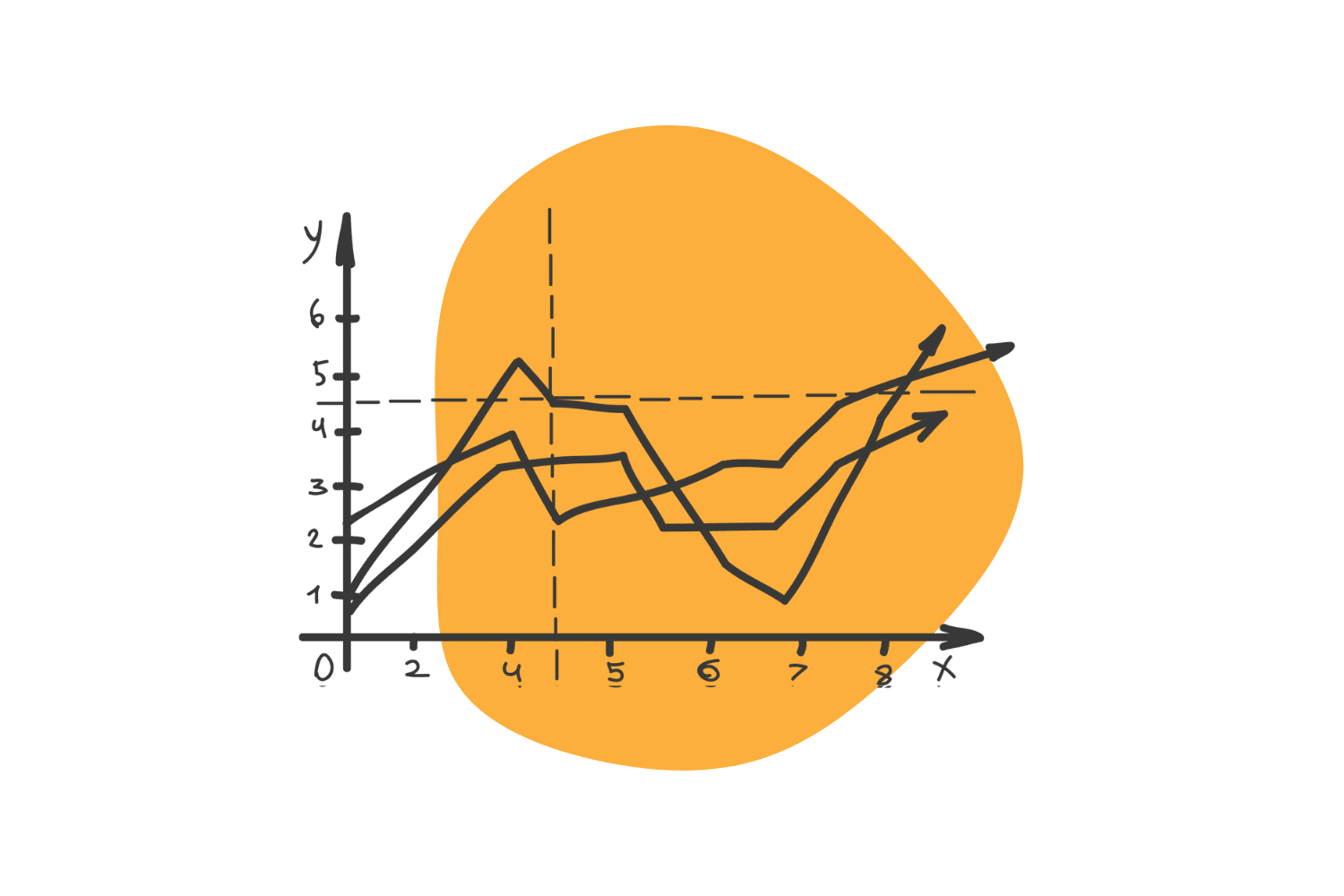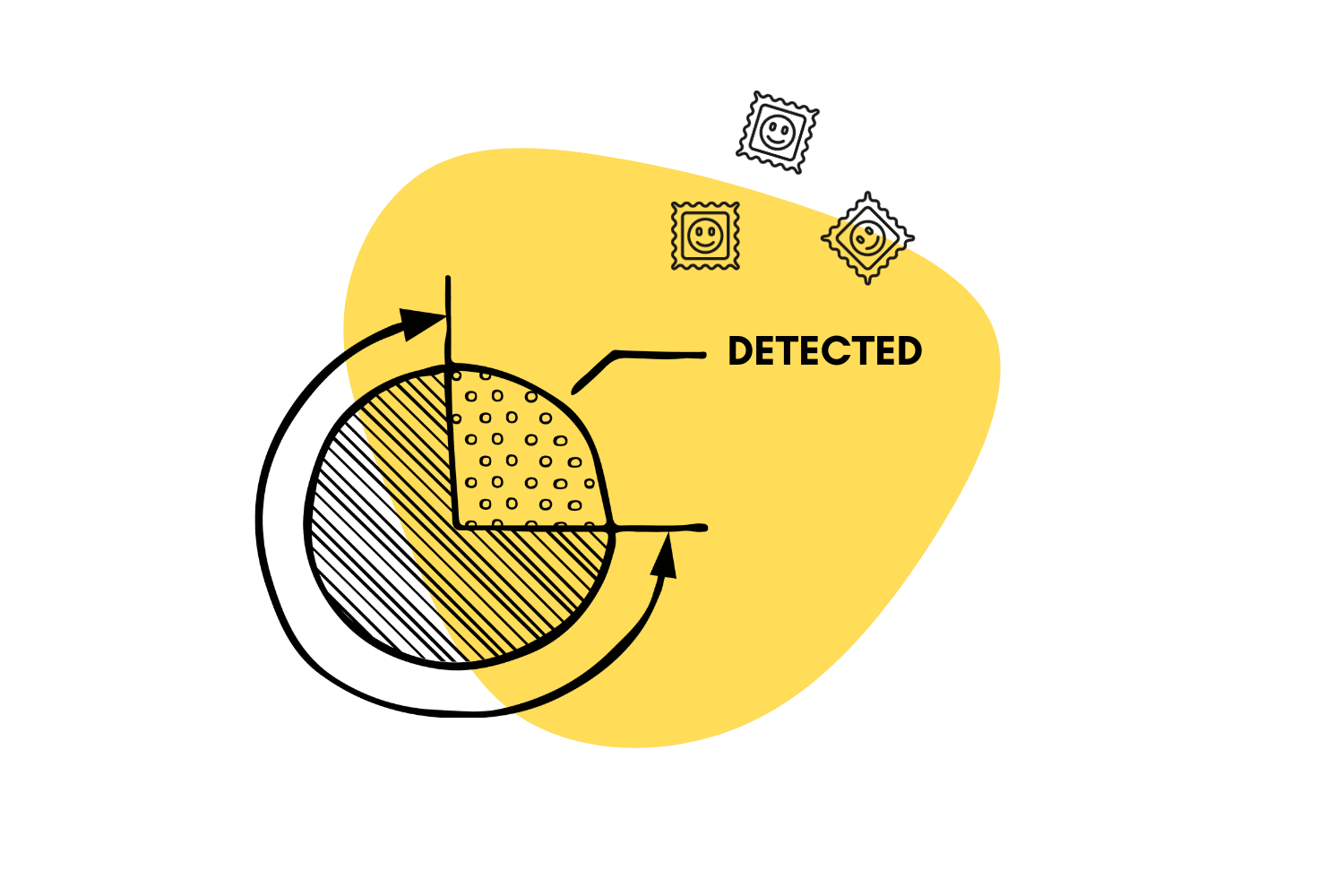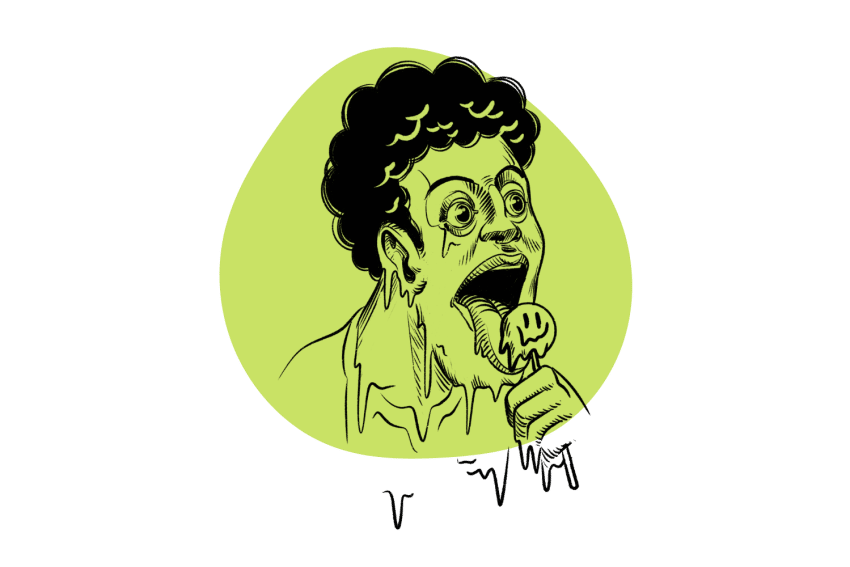What Are The Long-Term Effects Of LSD?
LSD doesn’t appear to cause any lasting changes to the heart, brain, lungs, or brain.

LSD is unlikely to result in significant long-term effects when used responsibly. However, those that use LSD compulsively or in very high doses could experience lasing visual or auditory changes in a condition called HPPD (hallucinogen-persisting perception disorder).
It’s also possible for this condition to occur without abusing LSD — however, the chances of this condition appearing from regular use is extremely low.
Here, we’ll explore the effects of LSD in the short term as well as several months or years down the line.
Summary: Potential Long-Term Effects of LSD
- Positive long-term effects include increased open-mindedness, interconnectivity, and creativity.
- Negative long-term effects may include hallucinogen-persisting perception disorder (HPPD) in cases of abuse or predisposition to psychiatric disorders.
- LSD has minimal direct physical effects on the body and organs.
- LSD affects the brain by interacting with serotonin and dopamine receptors, among other mechanisms.
- The most concerning long-term side effect is HPPD
A Primer on LSD
LSD (lysergic acid diethylamide) was the very first synthesized psychedelic drug on Earth. It was invented in 1938 by a Swiss chemist by the name of Albert Hofman while he was working for Sandoz Pharmaceuticals.
LSD has a reputation as a sort of beginner-level venture into psychedelics because of its impressive safety profile. In fact, there are very few physical side effects of LSD. Most of its effects take place within the mind.
Alterations in the mind, of course, can result in changes in the physical body, such as changes in heart rate, blood pressure, or muscle tension. When people get agitated or afraid, their heart rate increases. But these changes are initiated by normal fear responses in the brain, not by the LSD itself.
It’s nearly impossible to overdose on LSD. If you take too much LSD, you’re going to be in for a wild ride, but at no point are your organs going to start shutting down the way they might with other psychoactive drugs (such as NBOMes, datura, amphetamines, or opiates).
What Are The Immediate Effects Of LSD?
By far, the most typical short-term effects of taking LSD are visual and auditory hallucinations (more like visual disturbances than actual hallucinations), an enhanced sense of empathy and openness, a sense of connection with others around you, euphoria, and a feeling that you can “see” things as they really are (be it problems in your life or the people or environment around you).

The Effects Of LSD On The Brain
The effects of LSD on the brain primarily revolve around its action at the 5-HT2A receptors — but it does much more than that too. In reality, the effects of LSD are highly complex — triggering one reaction after another, collectively producing the effects we’ve come to know as the LSD trip.
Despite decades of research, we still don’t know much about LSD.
However, research is picking up again, and with modern imaging technology, we’ve been able to better understand how LSD affects the brain.
Here’s What We Know So Far:
- Activates the 5HT2A & 5HT2C serotonin receptors [8]
- Activates the dopamine D2 receptors [9].
- Increases in brain activity within the hypothalamus [3].
- Triggers a release of glutamate levels in cortical areas within the cerebral cortex [4].
- Inhibits the default mode network (DMN) — which serves as our source of ego.
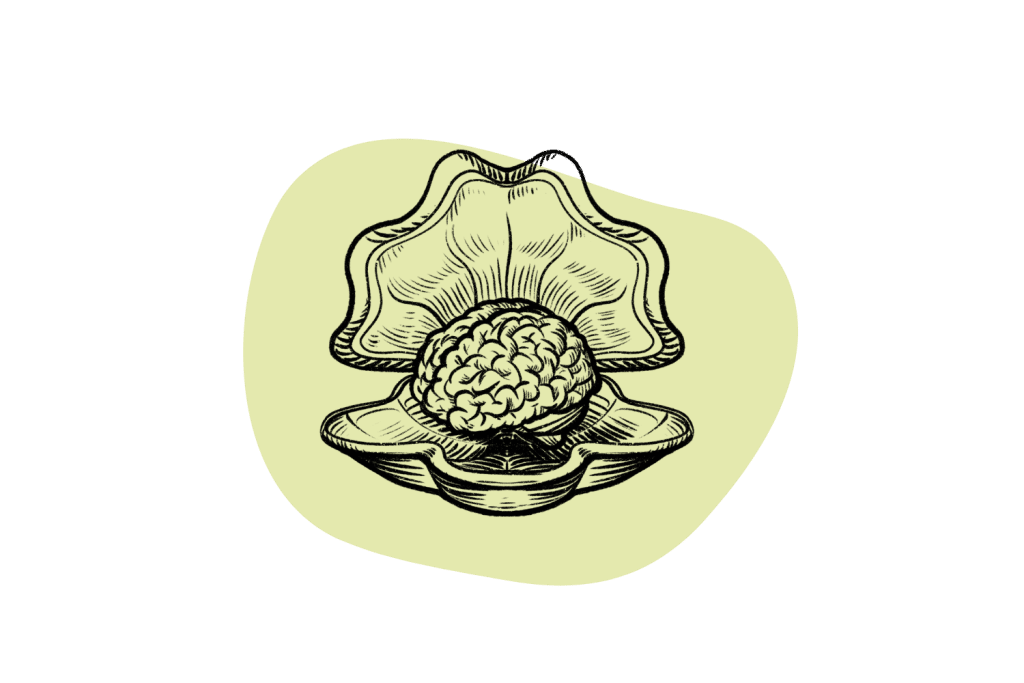
What Are the Potential Negative Long-Term Effects of LSD?
The idea of taking a substance and having it affect you months later is pretty frightening.
While many people experience “bad trips” on LSD, which can be pretty scary in the moment, once the effects of the drug wear off, everything goes back to normal.
However, there’s one side effect that could last days, months, or even years after the experience — a condition referred to as hallucinogen-persisting perception disorder (HPPD) [5].
This disorder is characterized as a reoccurring, persistent sensation of hallucinations, including perceptions of small movements, light distortions, and auditory hallucinations. The worst part is that these feelings tend to last several months or years and come and go seemingly without any warning.
The risk of HPPD increases if LSD or other psychedelics are used irresponsibly or if the individual has a higher risk of psychiatric disorders such as schizophrenia or psychosis.
Related: Does LSD Cause Brain Damage?
What Are the Potential Long-Term Benefits of LSD?
Many people experience a positive behavioral change after taking LSD [6]. Many people report feeling more satisfied in their lives or generally having a better mood and outlook on life.
This isn’t to say that they have become different people. Instead, people often cite a general feeling of more awareness of themselves, as well as increased connectivity to society and the world around them.
LSD also enhances creative thought, which likely explains why so many artists and musicians are so often associated with taking it.
People like Bill Gates, Steve Jobs, and Aldous Huxley all report that taking LSD was one of the best things they’ve done.
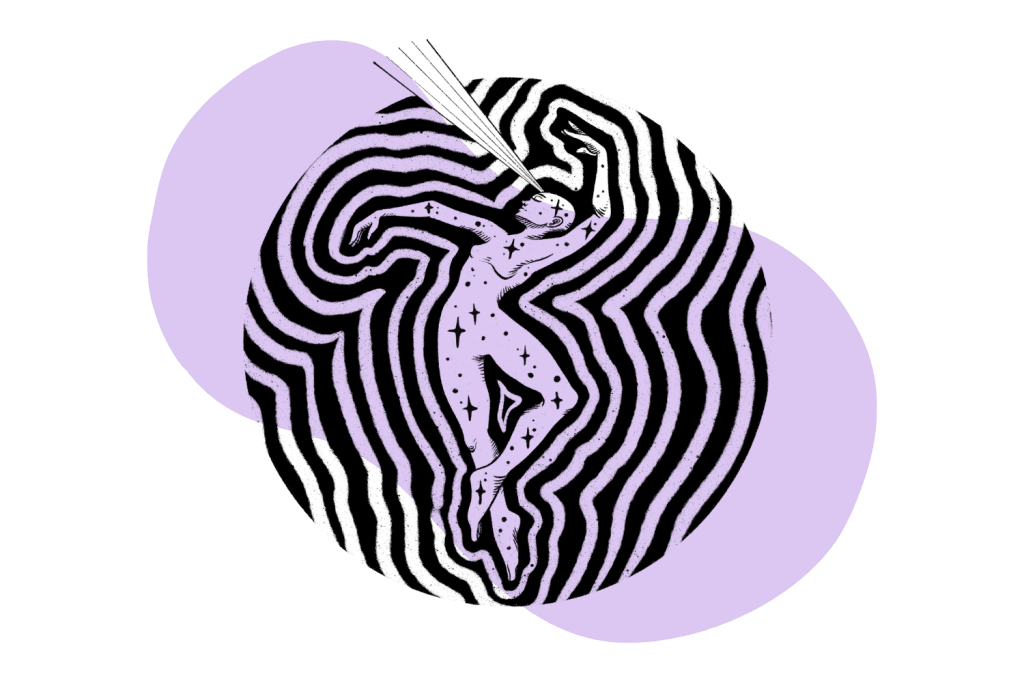
Final Thoughts: Is It Safe To Take LSD Long-Term?
It’s difficult to really say whether or not any particular substance is safe for an individual because everyone has different levels of risk tolerance. On top of that, not everyone is capable of handling the effects of LSD to begin with.
While studies have shown LSD to be **safe for most people**, there is always the risk of developing long-term negative side effects [7].
The most concerning long-term side effect of any psychedelic is HPPD — which involves recurrent visual hallucinations lasting several months or years.
The best thing to do is to make sure only ever to take LSD in a safe, supportive space, surrounded by people you love and care about. Never take LSD if you or a direct family member suffers from psychosis, schizophrenia, or other psychiatric disorders.
References
- Yockey, R. A., Vidourek, R. A., & King, K. A. (2020). Trends in LSD use among US adults: 2015–2018. Drug and alcohol dependence, 212, 108071.
- Fuentes, J. J., Fonseca, F., Elices, M., Farré, M., & Torrens, M. (2020). Therapeutic use of LSD in psychiatry: a systematic review of randomized controlled clinical trials. Frontiers in psychiatry, 10, 943.
- Preller, K. H., Razi, A., Zeidman, P., Stämpfli, P., Friston, K. J., & Vollenweider, F. X. (2019). Effective connectivity changes in LSD-induced altered states of consciousness in humans. Proceedings of the National Academy of Sciences, 116(7), 2743-2748.
- Nichols, D. E. (2004). Hallucinogens. Pharmacology & Therapeutics, 101(2), 131-181.
- Hermle, L., Simon, M., Ruchsow, M., & Geppert, M. (2012). Hallucinogen-persisting perception disorder. Therapeutic advances in psychopharmacology, 2(5), 199-205.
- Schmid, Y., & Liechti, M. E. (2018). Long-lasting subjective effects of LSD in normal subjects. Psychopharmacology, 235(2), 535-545.
- Carhart-Harris, R. L., Kaelen, M., Bolstridge, M., Williams, T. M., Williams, L. T., Underwood, R., … & Nutt, D. J. (2016). The paradoxical psychological effects of lysergic acid diethylamide (LSD). Psychological medicine, 46(7), 1379-1390.
- Titeler, M., Lyon, R. A., & Glennon, R. A. (1988). Radioligand binding evidence implicates the brain 5-HT2 receptor as a site of action for LSD and phenylisopropylamine hallucinogens. Psychopharmacology, 94(2), 213-216.
- Seeman, P., Ko, F., & Tallerico, T. (2005). Dopamine receptor contribution to the action of PCP, LSD, and ketamine psychotomimetics. Molecular psychiatry, 10(9), 877-883.

